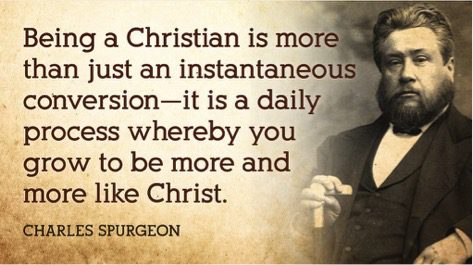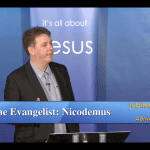 I have used Logos Bible Software now for more years than I care to remember. I have bought far more books for this software than I have physical books. It is so much part of my study routine whenever I want to dig deep into the Bible that it is hard to imagine serious Bible study without it.
I have used Logos Bible Software now for more years than I care to remember. I have bought far more books for this software than I have physical books. It is so much part of my study routine whenever I want to dig deep into the Bible that it is hard to imagine serious Bible study without it.
I have tried some of the other software available, and there is no doubt in my mind that Logos is quite simply the best tool available to study the Scripture.
If you buy Logos by following this link you help support this blog and get a 15% discount.
Start Doing Smarter Bible Study
With some software, upgrading is a pain in the neck because everything changes and you feel lost, or like you are getting to know a stranger. Fortunately Logos 6 is not like that. The familiar features that make this software seem like a friend to me remain unchanged. If Logos is new to you, you might want to scroll down towards the second half of this post, where I will review some of the things I love most that haven’t really changed massively. But there are many new things to discover which make the upgrade well worth it.
Here’s what’s new:
Put biblical concepts in ancient cultural context
With Logos 6, you can learn a lot about biblical concepts by exploring what ancient cultures said about them. The new Ancient Literature tool reveals deep connections between the Bible and ancient texts. You can search any cultural concept in the Bible, like “anointing” and Logos pulls references to that same concept in every work of ancient literature that you own.
Cultural context also shows up when you search for a verse in the Passage Guide, and as part of this tool, the Ancient Literature shows you connections to the Apostolic Fathers, Talmud, Mishna, Judaic literature, Philo, and more. This tool helps you flesh out the Bible’s background and see the impact it had on various cultures. It is a truly awesome feature, and also finds a place in the new Factbook, which is an auto-generated summary of information about a biblical concept. For more on how to use this fantastic tool, Logos has provided a brief video:
The great thing about these new tools is it allows you to easily do your own research on original ancient texts rather than relying on the work of commentators. It is very simple and easy to use. It produces results for you in seconds that you literally could not find as a non-expert, even in weeks of studying. Amazing relevant detail that you will find fascinating is put in one place.
Compare textual variants
Not all of us have the time, training, or tools to explore the differences between biblical texts. Logos 6′s Textual Variants tool lets you examine original manuscripts alongside modern and ancient translations and commentaries. You can see verses or words that are only omitted in some translations, see how ambiguous Greek and Hebrew words have been translated over time, and see which manuscripts influenced modern translations.
Create compelling presentations
Imagine for a moment that you’re reading a sermon by Spurgeon in Logos as part of your preparation to preach (and I do recommend you do that!). While reading, if you stumble upon a perfect quote that you want to use in your sermon, in Logos 6 you can transform that quote into a PowerPoint or Keynote slide. This uses a new tool called the Visual Copy tool. Simply select the quote and right click on it (with Mac use a two-finger click). Visual Copy should appear, and it will then allow you to choose from tons of premade slides (some famous authors, like Spurgeon, even have their own custom slides). Logos automatically adjusts the quote to fit onto the slide, so you don’t have to fiddle with it at all! Here is an example:
Bring the Bible to life
For visual learners, Logos 6 has a suite of tools called Interactive Media. These resources help you find fresh perspective, develop new skills, and approach the text from different angles. For example, the Psalms Explorer lets you sort all 150 psalms by genre, topic, theme, or author, so at a glance you can see, for example, that most of the psalms David wrote are laments. You can also study the poetic structure of each psalm. Watch the Psalms Explorer go to work:
Interactive Media provides high quality visuals, perfect for teaching concepts and for studying them on your own.
Why use Logos books?
There are a lot of tools out there to help you study the Bible, and plenty of ways to read your go-to theology texts. So why use Logos?
Get more from every book
When you read any book in Logos, everything else in your library is a click away. You can certainly actually read books using this software, especially if you also download an app for your phone or tablet. But the real strength comes into play when one text refers to another. You can jump right to that book (on the exact page that was referenced) and pull up the texts in parallel panels. One moment you could be reading your favorite commentary alongside Scripture, and the next you could be delving into a Bible dictionary to understand difficult words or concepts.
The smallest Logos base package contains over 3 million links between resources (the largest Logos library has about 23 million). Thousands of notes, words, and concepts are tagged, so there’s always more for you to learn. The more books you have, the more valuable every book in your library becomes. A single text could unlock thousands of connections to the rest of your library. More connections make it easier to discover insight.
Fill your computer, not your office
If you went to seminary or you’re a pastor or professor, or are simply an avid purchaser of Christian books, the chances are you have shelves full of books lining your office walls. Some of those books you use every day. Some of them collect dust. When it comes to your office, more books isn’t always a good thing. The smallest Logos base package contains 241 total resources. The biggest base package, Collector’s Edition, gives you a bigger library than you’d ever have room for in print (5,002 total resources), but it doesn’t take up any more space in your office than Logos Starter. Your entire library lives a click away on your desk, or in your pocket.
Dig deeper with datasets
Datasets are Logos Bible Software’s secret sauce. They instantly arrange information that would otherwise take hours to find and assemble (Faithlife’s team of biblical experts have already spent those hours for you). Take the Biblical Word Senses Dataset for example. It gathers 1,500 word meanings and connects them to English, Greek, and Aramaic words. English terms are linked to relevant Greek, Hebrew, and Aramaic words, so you can search for English terms and find original language lemmas and every alternate meaning used in the Bible. You can see how often a particular word occurs in the Bible and how it relates to other words or concepts. There are dozens of datasets like this in Logos, including Ancient Literature, Timeline, Propositional Bible Outlines, and Preaching Themes. Each dataset took scholars countless hours to produce, and now they save people hours of work every day.
Let Logos work for you
This software really does turn hours of study into seconds. The more I use it, the more I discover. Right now, my readers can get a special 15% discount on Logos 6 with coupon code WARNOCK6. See how here.
“What is Bible software and why should I want it?” you might ask. In this digital age, Bible software uniquely enables you to study the Bible in depth in a way that previous generations could only dream of doing. When I first began studying to preach, I could sometimes be found in the London-based Evangelical Library with a load of bible commentaries strewn on the desk in front of me all open at the same reference. Logos soon put a stop to that!
For many years now, if I want to check out the meaning of a Bible passage, or do a word study in the original Greek, or indeed check out the latest theological thinking on a certain subject, I often turn to what I often think of as my full-time personal digital assistant. I can get the information I need in seconds.
I call my growing collection of electronic commentaries, lexicons, Bibles, interlinear Bibles, reference books, and theological journals my personal Theological Seminary in a Box.
Over the years I have found this software to be an invaluable resource in sermon preparation, and I can’t recommend it highly enough. At first glance the prices do not seem cheap, I will admit, but there are two things to remember:
- Per book, the prices are very very low. All versions of the software include so many books that they would cost thousands of dollars if you bought them in paper form individually. Divide the cost of your purchase by the number of books you are getting and you will see it is very good value, and that is without considering the benefits of all the search tools. They also offer an installment plan, very helpful if you are a pastor with a book allowance.
- It helps you decide if seminary is for you. I know some of you will have at least considered putting careers on hold and remortgaging your homes in order to pay for a theological education. You might find this software is a better investment than that, or at the least, buying it might help you decide if Bible college really is for you and thereby save a costly mistake! A few hundred dollars to save several thousand is not a bad idea. If you are not able to get at least some benefit from personal study with Logos Bible software, I very much doubt that Bible college will be helpful for you.
For me at least, I have found that this software goes a long way towards making up for my own lack of theological degrees. Certainly I have needed to learn from others in real life (and have done day release courses over the years). But with Logos, the pooled expertise of thousands of scholars is instantly at my fingertips!
Being able to search your entire library for references to that obscure Bible verse you are trying to understand is a virtual life-send when preparing a sermon. It is like being able to ask thousands of scholars what, if anything, they have written on a particular verse, and getting an instant answer from any of them who have done so.
Even if you are not a preacher, I can’t recommend this resource highly enough, and I hope you will benefit from it over many many years, as I have. A wise man or woman invests their money where it will have a return in the long-term. A copy of any of the Logos Bible Software libraries is just such an investment. Enjoy it, and enjoy the discount with my blessing, and my thanks for reading this blog.
With Logos on my computer it feels like I have not just one but an army of full-time research assistants, many of whom are world-class, at my fingertips. Want to read a lot of commentaries on a Bible verse? No need to go to a library, just type the passage into the search box on the home screen and click “go.” Want to see what top theologians think on an issue? Just type the topic into that same box and hit search. Simple!
The Passage Guide and the Topic Guide are the two features you will use the most, and work really really well. I love the way that results are ranked so that you can find the most relevant ones near the top. It is just as easy as using Google. But there is so much more under the hood, too.
We are so used to things being instant these days that I do sometimes forget that the seconds I wait while Logos searches thousands of books is quicker by thousands of percentage points than attempting to access even a fraction of the information it returns by any other way! Over the years it has become much faster, however, and I no longer feel I need to go make myself a cup of tea while the little servants working in my computer go to work to ferret out gems for me!
Logos Software is something that up until a few years ago felt more PC than Mac. But with each upgrade they improve the usability and accessibility, and this is no exception. Now, with the launch of Logos Bible Software 6 they definitely take another step forward in usability, and at the same time add some more in-depth tools. And the good news is for Mac users that the software is available at the same time and with the same feature set as for PCs. You can also download apps for your mobile devices, or read your books on the internet at Biblia.com.
One really good thing from my perspective, and this is always the elephant in the room when it comes to any technological upgrade, is (as I said earlier), it hasn’t changed too much! One of my frustrations with Microsoft is the way each time I upgrade or downgrade the version of Office I am using I cannot find my way round it. I say downgrade because sometimes I have moved jobs and found the new job used an older version than the previous one. Cue lots of frustration as you are unable to find simple features! Not so here. Within minutes of using the software I couldn’t remember how it differed from Logos 5, and that is a very good thing! No steep learning curve here if you are already a Logos user. If you are a longtime Logos user this will feel very familiar, but there are definitely some significant extra features.
Most people only use the surface functions of any software. Sophisticated software like Logos Bible Software has a real challenge because it needs to be able to satisfy both someone who just wants to dig out some Bible commentaries or search some books, and an expert theologian who wants to do a sophisticated study of the Greek or Hebrew and all kinds of things I don’t fully understand! Logos does just that. In fact it is very easy to right click (or if you are a Mac user, two-finger click) on any word in a Bible (or other book you are reading!) and do a Bible Word study which is very helpful, and can make you feel like you know your Greek better than you do. Beware of little knowledge! But at least you can do your own word study, think through what you think it means, and then check out whether the real theologians have come to similar opinions. If you think you are onto something brand new, buy yourself some more commentaries, to see if you just haven’t checked widely enough to find someone else who agrees with you. Then, if you are still “alone,” be very very cautious! The chances are very high that you are NOT the next Martin Luther!
The timeline feature is incredibly useful as you can search it for events and people, then click on the event to be taken to relevant pages in your books. Want to know why scholars now believe Jesus was born several years earlier than we traditionally thought? Follow the link from the timeline to examine the evidence that King Herod the Great, who ordered the under-two’s of Bethlehem to be killed actually died in 4BC.
I don’t think I need to say any more, perhaps I have already said too much! The long and the short of it is you can buy yourself some Bible software at a discount right now, and spend the rest of your life enjoying the benefits of efficient Bible study. Just remember to live what you learn, for knowledge without love puffs up. But knowledge rooted in true discipleship will bring many positive results. I sometimes think that owning Logos is a bit like cheating! But life is not an exam, and as long as you don’t simply copy someone else’s work and pass it off as your own there really are no drawbacks. The only real question is how big a package can you afford? Enjoy, choose the best your budget can justify, but just make sure you will still be able to afford to eat!
Logos has been kind enough at times to give me some packages, and they did donate a Logos 6 package. Over the years I have also bought a number of packages from them myself. If you purchase Logos through this site you help to support adrianwarnock.com and get a 15% discount.













